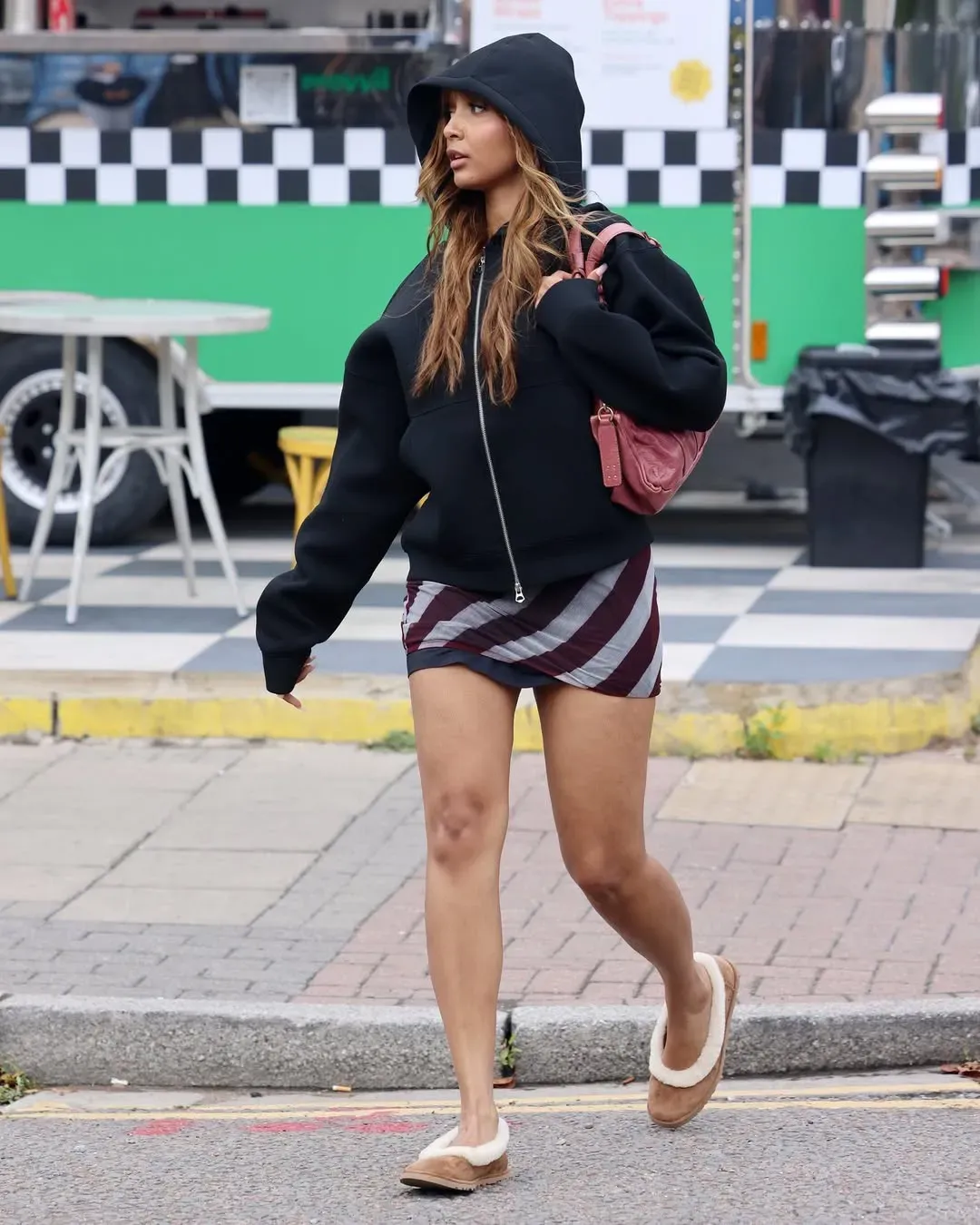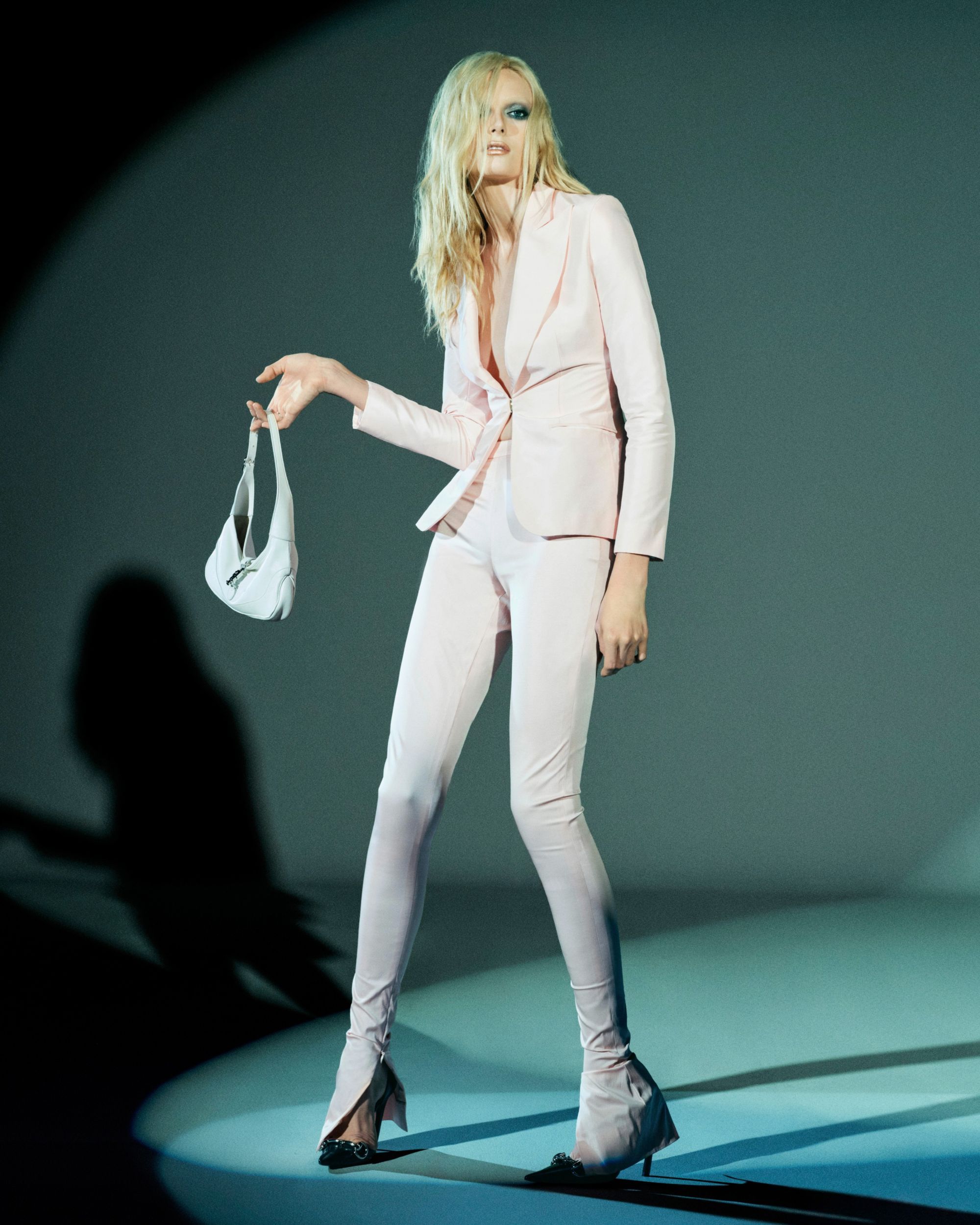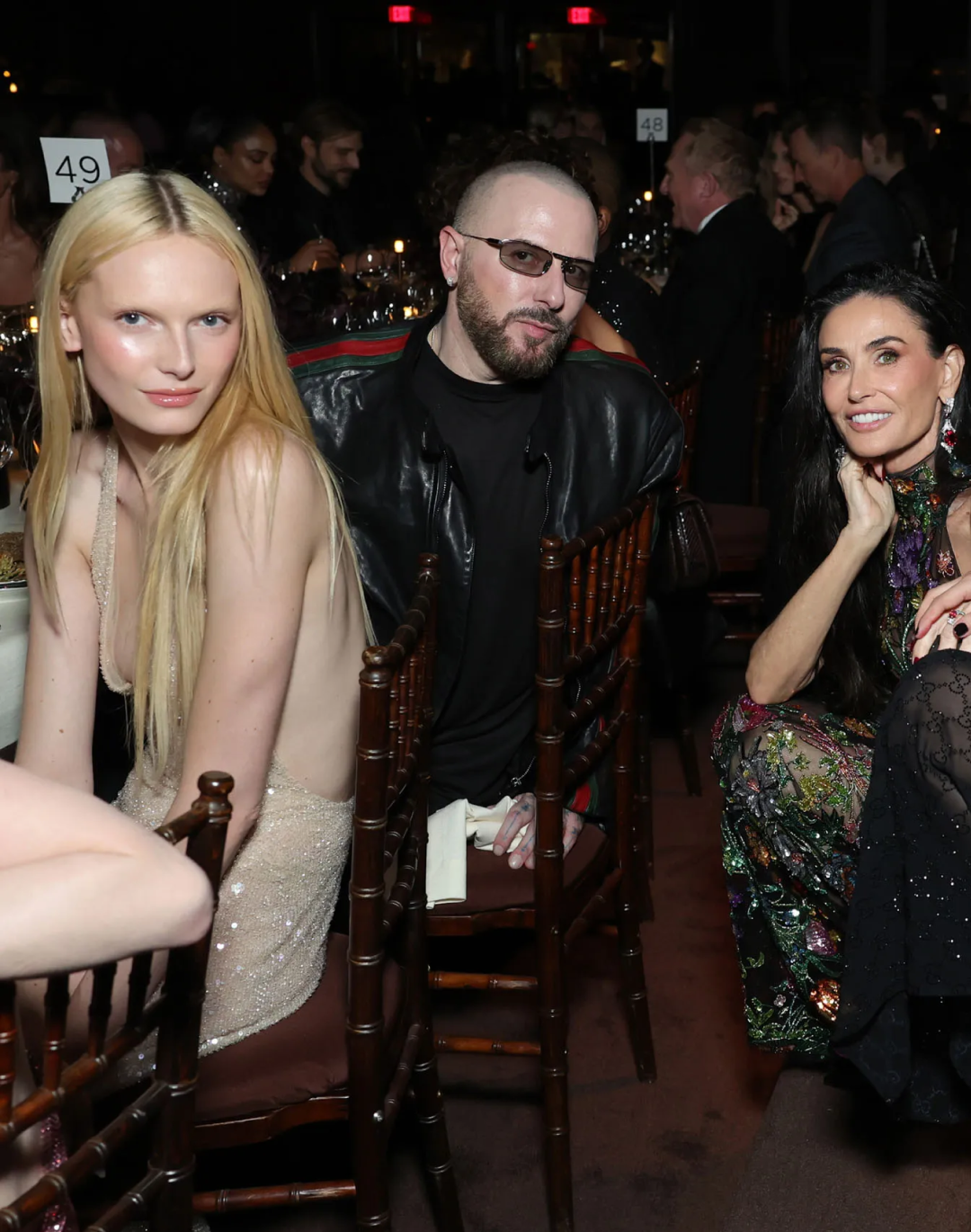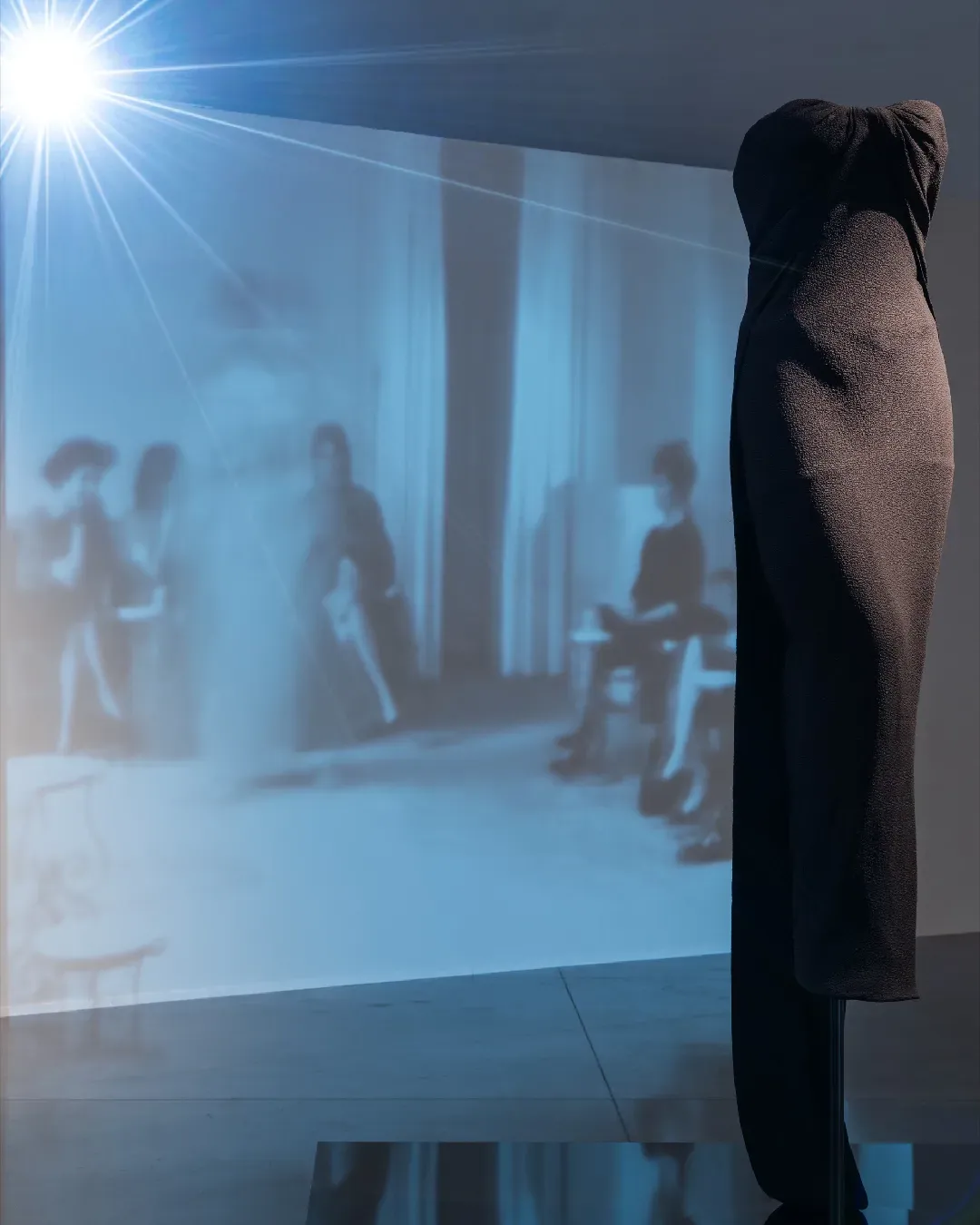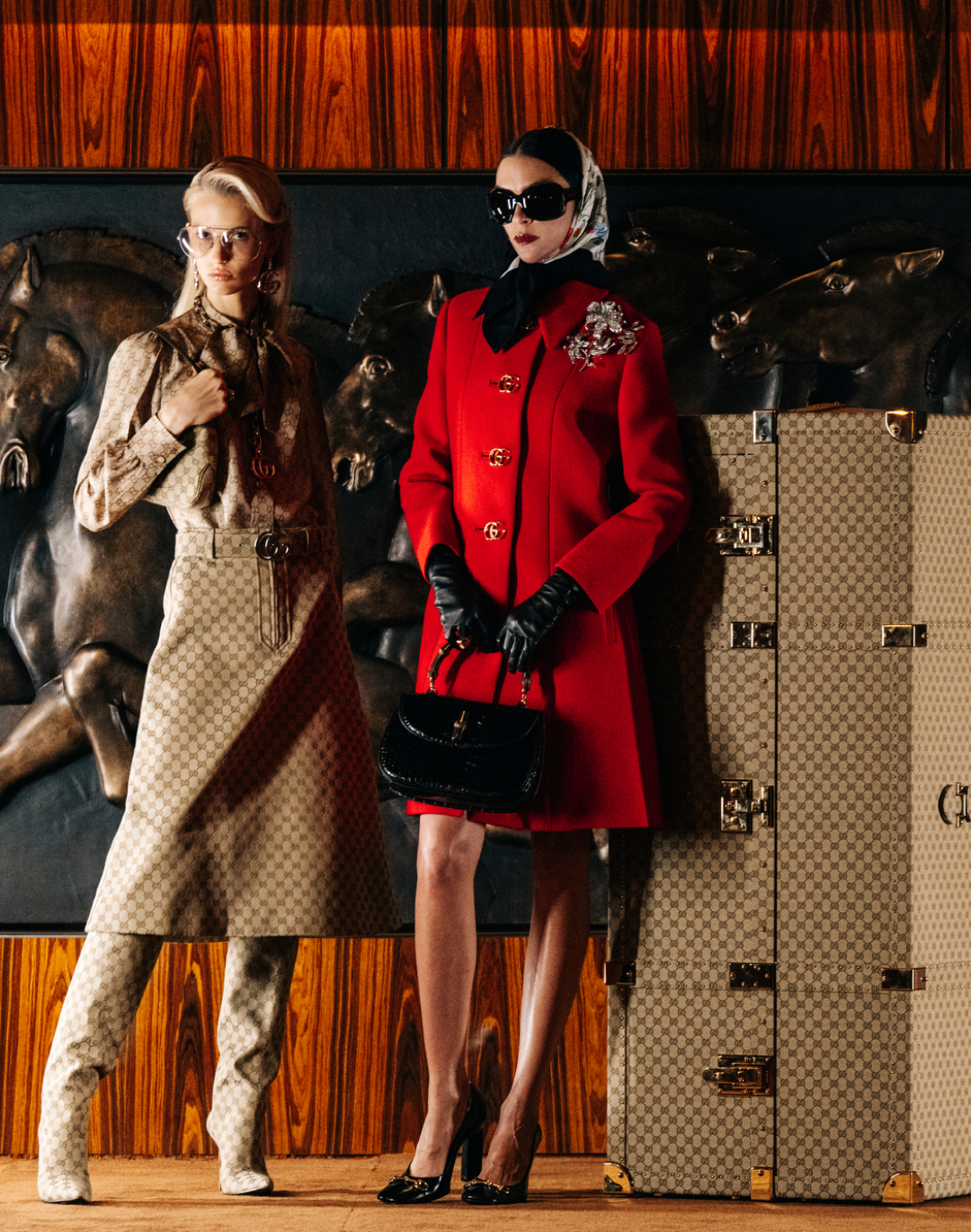
Balenciaga's tribute to Ukraine seen by a Georgian woman Can fashion double as resistance?
When Putin's troops invaded Ukraine, the relaxed atmosphere of Fashion Week on the other side of Europe seemed jarringly set against the horror of a war, inappropriate and seemingly insensitive to the conflict. In part because, despite the growing tensions, the direct confrontation seemed distant and unlikely, catching everyone, political class first and foremost, totally off guard, and in part because fashion, although it constitutes the livelihood of a vast supply chain, in its most glossy and mainstream aspects (fashion shows, red carpets and celebrities attached) always seems out of touch compared to "real" life. It is no coincidence that the only meaningful tribute on the catwalk came from a designer who really lived through the war, Demna. And even if it wasn't exactly the same war, the Ukrainian invasion by Putin's troops was a vivid deja vu for the people of Georgia, a plunge into the past to the bombings of 2008 and even before the war of 1993, when instead of Dombass and Crimea there were Ossetia and Abkhazia. As a teenager Demna, like my family, was forced to flee Russian repression, "trading" two Kalashnikovs for a horse on a crossing to Germany where he was welcomed into a refugee camp. Twenty years later, our homes, the graves of our loved ones, some of whom fell in that same war, are still in the hands of the occupiers. And no one can understand this, no one who has not experienced it, a feeling of traumatic loss, the feeling of not being able to have anything really yours anymore and of never really being safe.
A huge t-shirt with the colors of Ukraine and a letter: this is how Balenciaga's fashion show opened last Sunday, in which the models walk in a blizzard of artificial snow, some with only a blanket on, to represent the flight of refugees from their country to an unknown destination. «The war in Ukraine has triggered the pain of a past trauma I have carried in me since 1993, when the same thing happened in my country and I became a forever refugee. Forever, because that’s something that stays in you. The fear, the desperation, the realisation that no one wants you. But I also realized what really matters in life, the most important things, like life itself and human love and compassion. his is why working on this show this week was so incredibly hard for me. Because in a time like this, fashion loses its relevance and its actual right to exist. Fashion week feels like some kind of an absurdity… I realized that canceling this show would mean giving in, surrendering to the evil that has already hurt me so much for almost 30 years. I have decided that I can no longer sacrifice parts of myself in the name of the heartless, meaningless war of ego. This show needs no explanation, it is a dedication to fearlessness, to resistance, and to the victory of love and peace». With these words, the designer welcomed everyone to his show at Le Bourget on the outskirts of Paris.
The war leaves something indelible in the sensitivity of those who live there: the priests in black robes and long beards, the babushkas facing the veranda with their veils around their faces, the poverty and the second-hand clothes. Demna has moved abroad but the memories of his childhood watching The Simpsons on the only TV in the neighborhood along with the neighbors' children are the real poetic material of his collections, from post-Soviet architecture to political uprising movements, the imagery of his homeland is in everything he does, but he emerged mainly with the "underground" collective Vetements that he co-founded with his brother Guram in 2014. For SS19 Demna Gvasalia presented her latest collection for Vetements - before finally passing the baton to Guram - inspired by "family and violence," not just a tribute to her home, but a project to educate the rest of the world about the struggle of the Georgian people and what has been recognized for all intents and purposes as genocide.
We stand for peace and donate to WFP to support first humanitarian help for Ukrainian refugees.
— Balenciaga (@BALENCIAGA) March 2, 2022
We open our platforms in the next days to report and relay the information around the situation in Ukraine. Follow the link to donate now.https://t.co/RtEToYne4j pic.twitter.com/F6OsxHmeos
But if twenty years ago the bombings of a country on the other side of Europe echoed in the void and families faced the diaspora in a foreign land without a penny in their pockets, in a country where they knew neither the language nor a friendly face, the Ukrainian conflict has mobilized an unexpected solidarity. The political balances seem as fragile as those of twenty years ago, with a tyrant who has not yet paid the price for a long list of war crimes and continues to commit new ones, but the fashion, the world, are no longer the same. For many, the tribute held in Paris with 2,000 euro handbags and celebrities who couldn't place any of the states I've mentioned so far on the map was a show off by the privileged for the privileged, a self-referential gesture. But fashion, like any other art form, through the symbol creates an almost metaphysical connection with a message and eternalizes it: the 2019 Vetements fashion show was a symbolic redemption for a country whose history has been ignored, reminding the world of what happened in general indifference; the Paris fashion show for Ukraine was a sign of closeness, a tribute and a personal reworking of a human experience that unites everyone who has lived it regardless of nationality through a language that might seem futile only to those who do not understand it.















































